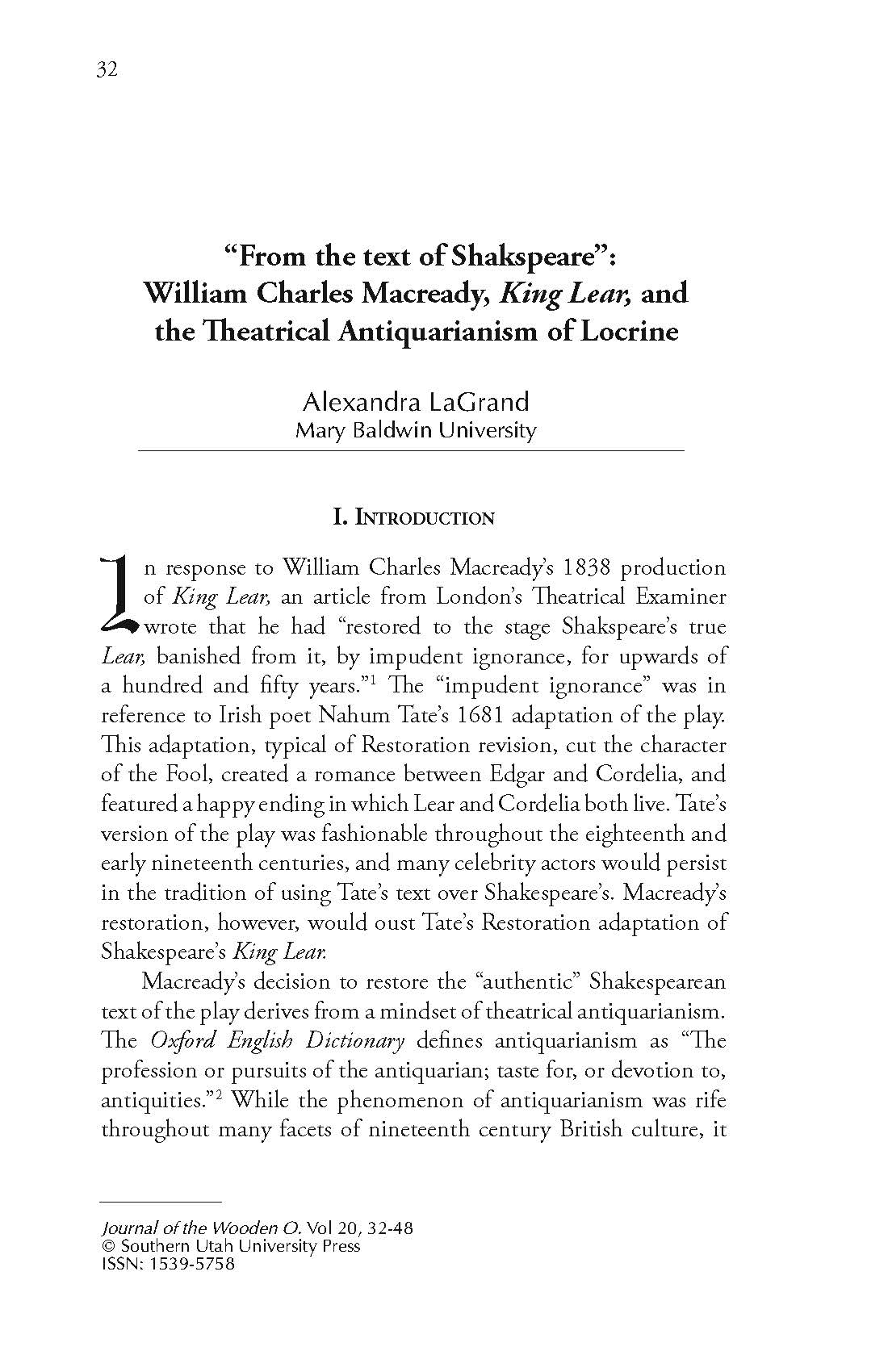"From the text of Shakespeare" William Charles Macready, King Lear, and the Theatrical Antiquarianism of Locrine
Main Article Content
Abstract
In response to William Charles Macready’s 1838 production of King Lear, an article from London’s Theatrical Examiner wrote that he had “restored to the stage Shakspeare’s true Lear, banished from it, by impudent ignorance, for upwards of a hundred and fifty years.”1 The “impudent ignorance” was in reference to Irish poet Nahum Tate’s 1681 adaptation of the play. This adaptation, typical of Restoration revision, cut the character of the Fool, created a romance between Edgar and Cordelia, and featured a happy ending in which Lear and Cordelia both live. Tate’s version of the play was fashionable throughout the eighteenth and early nineteenth centuries, and many celebrity actors would persist in the tradition of using Tate’s text over Shakespeare’s. Macready’s restoration, however, would oust Tate’s Restoration adaptation of Shakespeare’s King Lear.
